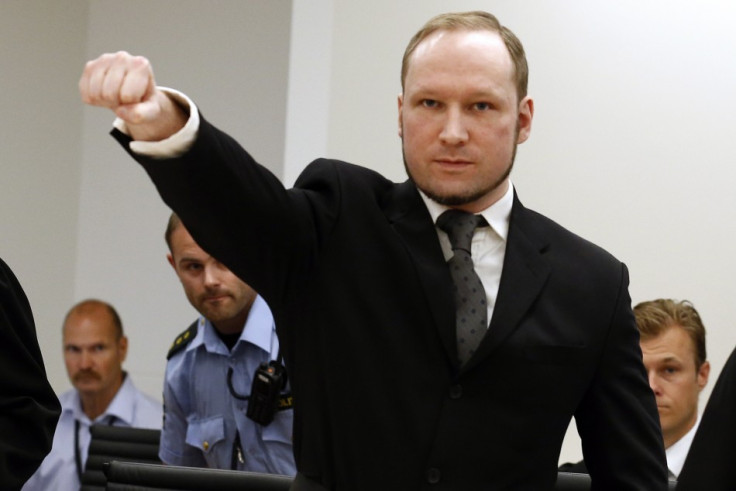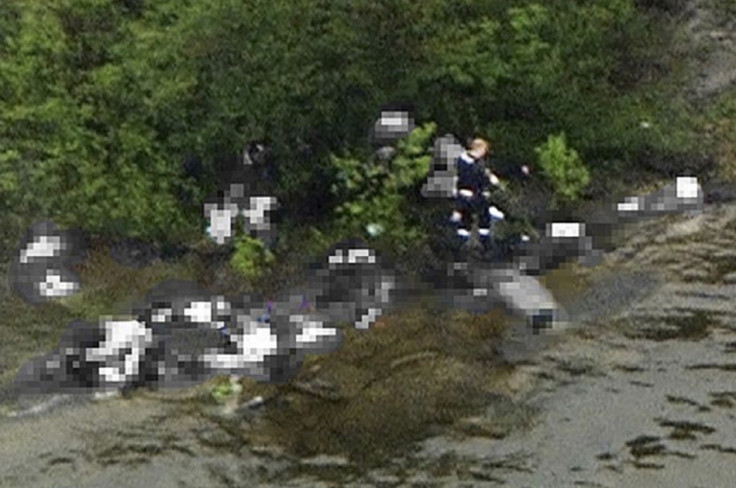Anders Breivik 'Becoming More Dangerous' says Norwegian Mass Murderer's Father

The father of Norwegian mass murderer Anders Behring Breivik says he fears his son has grown more radicalised and possibly more dangerous while in prison.
Earlier this week, Breivik refused his father Jens a visit to the prison where he is serving a 21-year sentence for killing 77 people, writing in a letter that he was not welcome unless he embraced fascism.
"The letter scared me," Jens Breivik told reporters in Oslo at the launch of his book Min Skyld? En Fars Historie (which translates to 'My Fault? A Father's Story').
"I think he's just becoming more and more extreme. Maybe he's becoming more dangerous, too. I don't know," said Jen Breivik.
In the letter, reproduced in the book, the right-wing extremist urges his father to "reject his social democratic ideology" and join the Norwegian fascist movement instead.
Breivik grew up with his mother in Oslo as, when he was four, his father lost a custody battle.
The two used to meet up to four times a year but, after Breivik turned 16, their contacts ended, something Jens says he regrets.
"I could have influenced him in a positive direction. But it didn't happen," he said. "If I had had more contact with him. If I had been a better father, then maybe he would have been a different person today."
A right-wing fanatic wanting to rid Europe of Muslims, on 22 July, 2011, Breivik set off a bomb that killed eight people in Oslo, before going on a shooting rampage that left another 69 dead on the Island of Utoya, where a youth camp run by the centre-left Labour party was being held.

The incident was one of the worst terrorist attacks in Europe since the Second World War.
His father, who works as a diplomat in France, says that there was nothing in Breivik's childhood that would have suggested he could one day turn into a mass murderer.
"It's completely unfathomable to me that my own son would have done such a thing. I will never understand it," he said.
"I think a lot about those who lost their lives and those who were injured," he added. "I wish I could ask for forgiveness on Anders' behalf."
Earlier this year, Breivik claimed his "heart cries" for his victims, in one of a series of letters he sent to media organisations.
In the letters Breivik says he no longer believes in armed action as a means to stir Norway towards fascism, claiming he has regained trust in democracy in the wake of the political success of Greek neo-Nazi party Golden Dawn.
"As an ex-militant, my heart cries for the barbarity that I carried out," he wrote in August 2014. "But mostly I'm sorry that barbarity is useful in the struggle for democracy."
However he says he would be ready to apologise to the families of his victims only if the "political exclusion" of fascists in Norway ends.
© Copyright IBTimes 2025. All rights reserved.






















